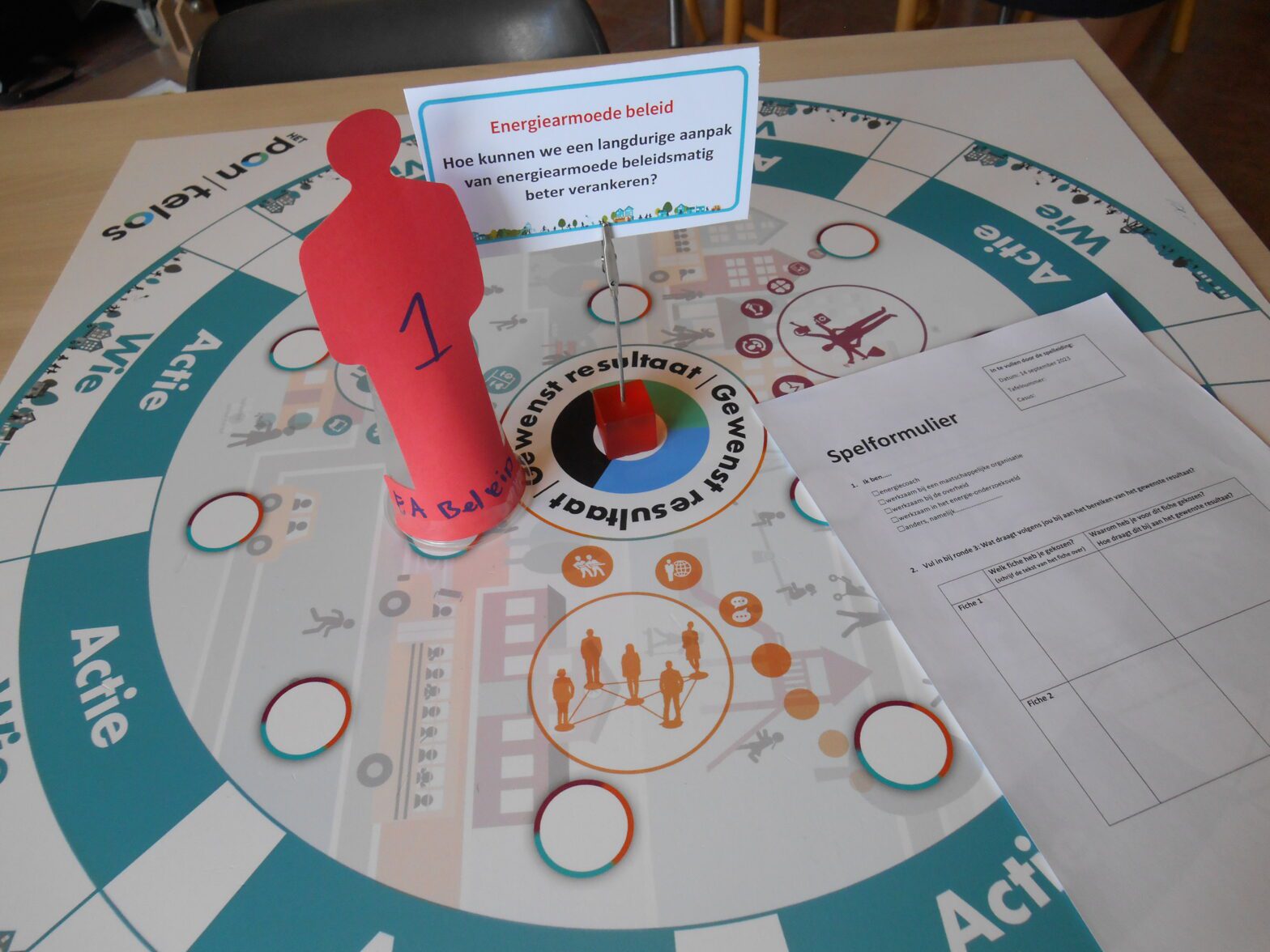In a resilience dialogue in Eindhoven, the EnergyMeasures project brought together 44 people to discuss ways to combat energy poverty in a playful format.
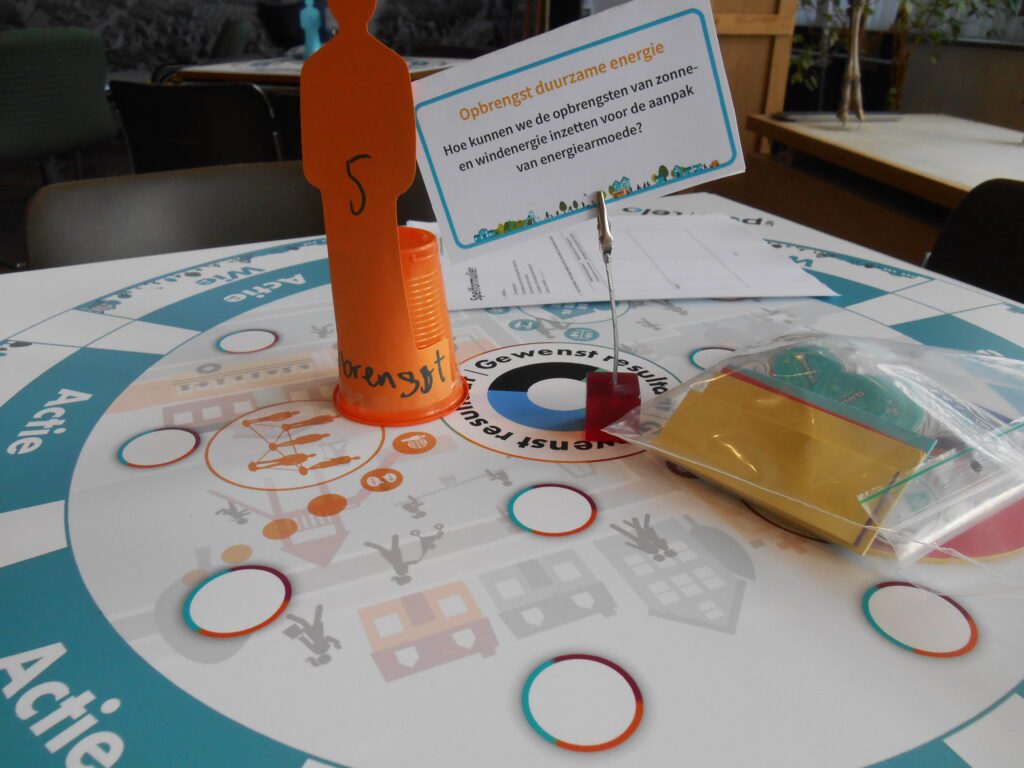
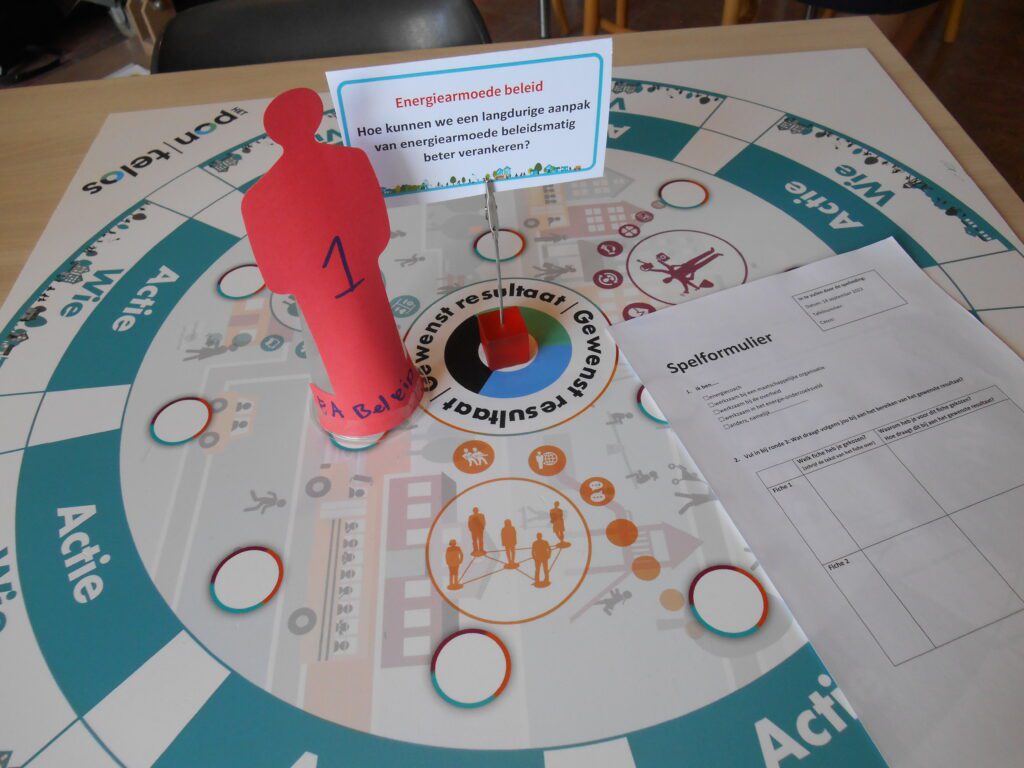
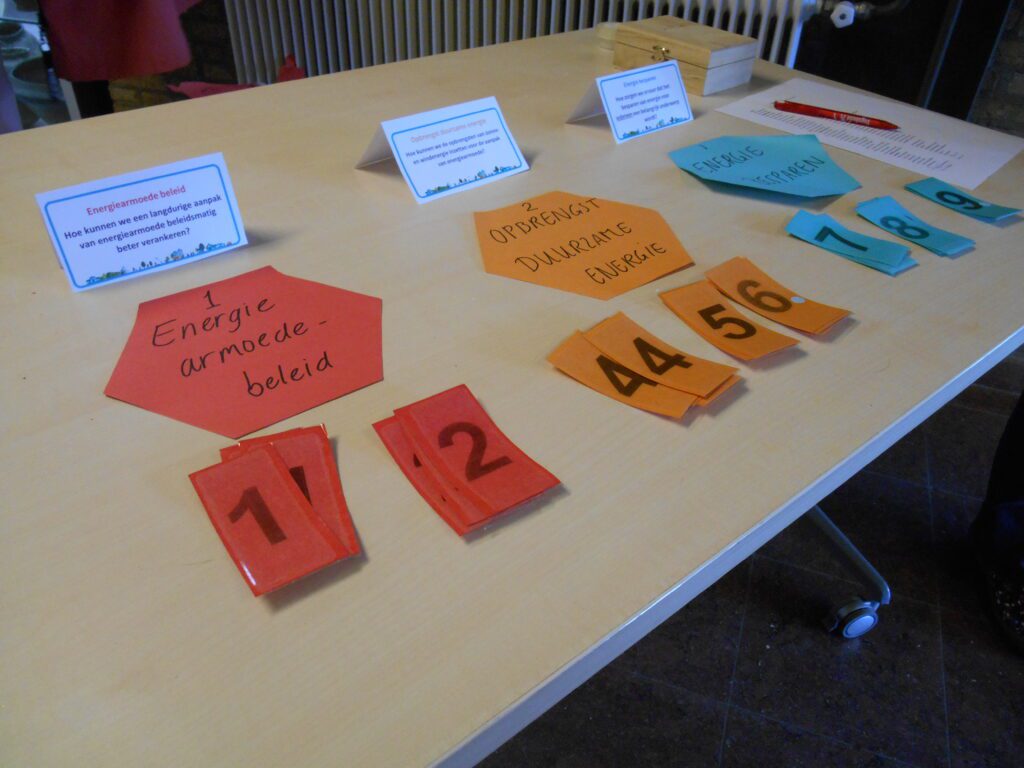
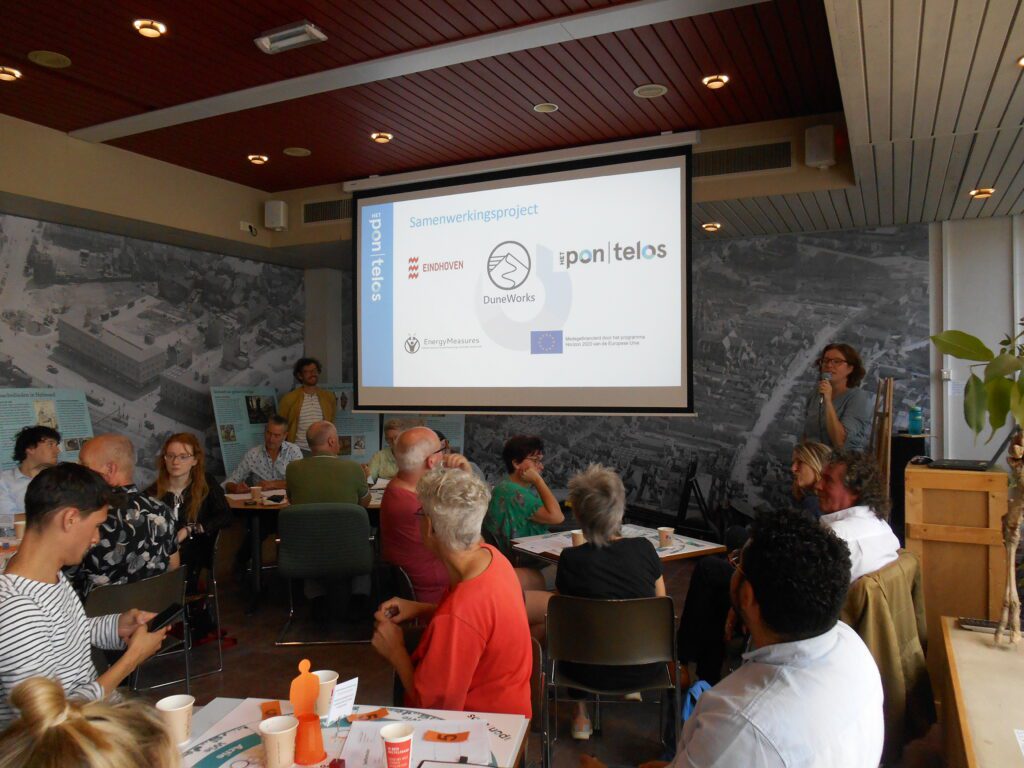
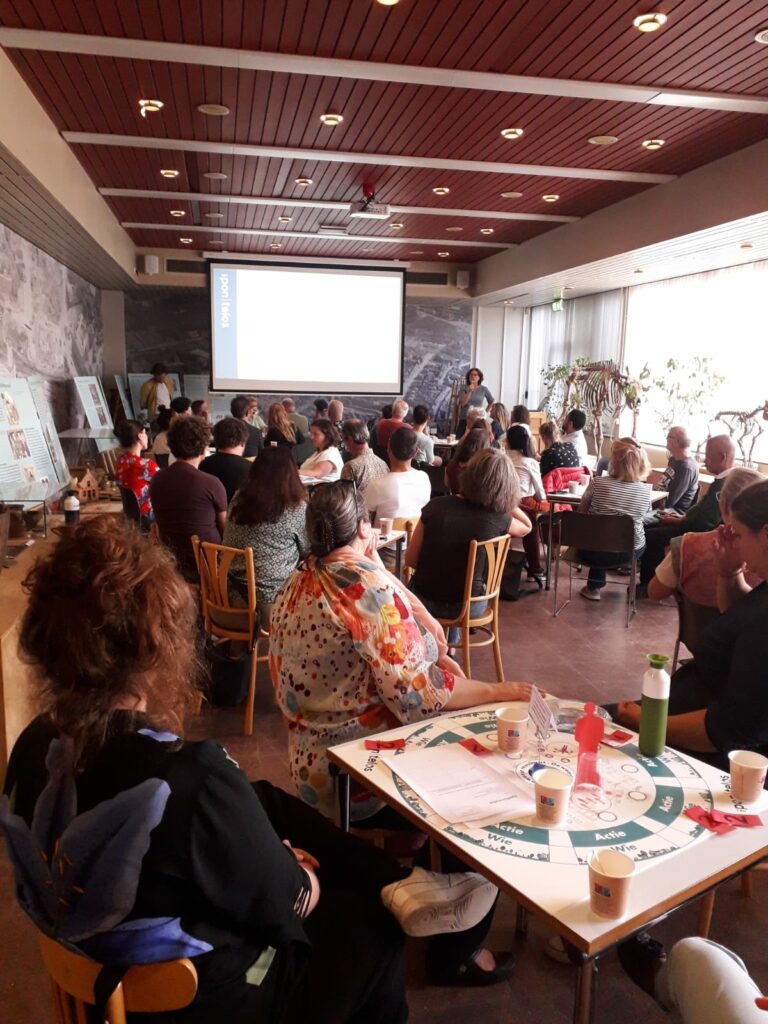
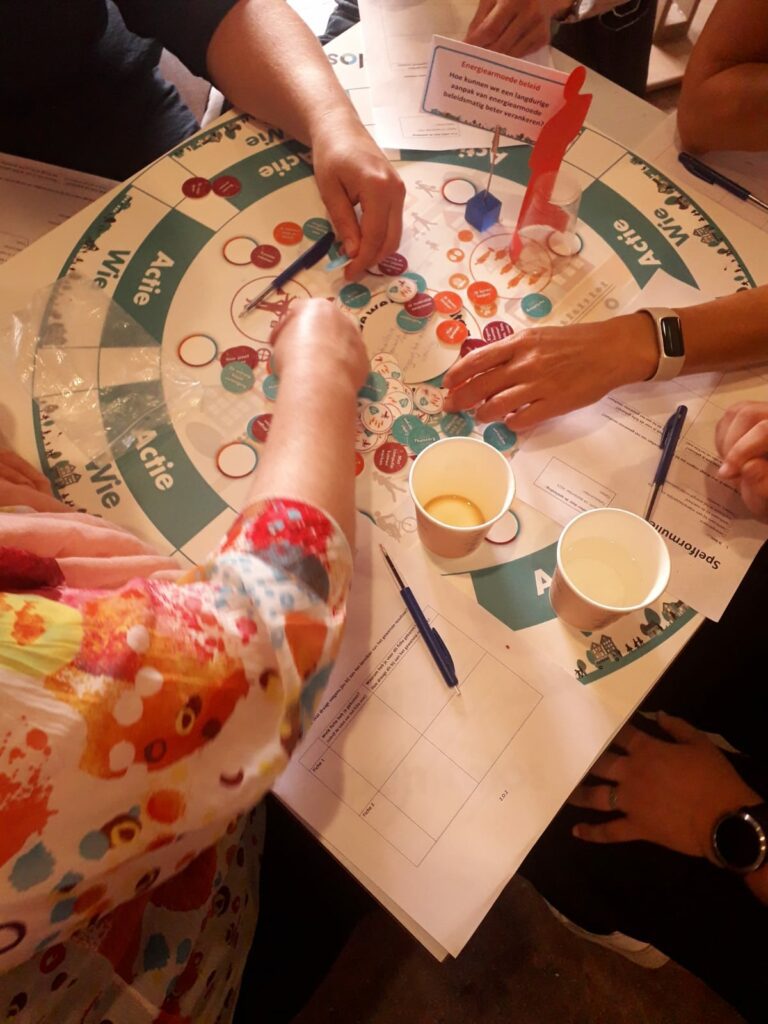
The resilience dialogue is a serious game method developed by Het PON & Telos that can be used stirr discussion in any context. The game invites participants to think thoroughly about an issue and to listen to each other The method leads to awareness and those involved are stimulated to come up with solutions, and then work on the results themselves. During the game, one issue is discussed per table. Participants work together with five persons per table. In a number of iterative rounds, the question is explored in more depth and the participants look for solutions together and actions are discussed.
The EnergyMeasures resilience dialogue was organised by Het PON & Telos, Duneworks and the Municipality of Eindhoven. The target group were professionals from the field of combating energy poverty, which is why a relatively large number of energy advisors (39%) and policymakers from municipalities (27%) participated. In addition, there were a number of researchers who contributed ideas to solutions to alleviate energy poverty and the Flemish EnergyMeasures partners of Kamp C and Saamo also joined.
There were three questions which participants could choose from:
- Energy poverty policy: How can we make a long-term approach to energy poverty policy more firmly in place?
Looking at the proposed solution directions, this question was (perhaps not surprisingly) seemed difficult to answer unequivocally. Municipalities struggle with how their energy poverty approach is embedded and anchored in policy. From the central government, money is sent to municipalities to provide an energy poverty approach, but the solutions that are realised are often short-lived. To better embed the energy poverty policy, there should be more measures by the central government, like ‘building affordable housing’ or ‘subsidies for emergency buyers’. Also for the action ‘make homes more sustainable within 5 years of purchase’, a change in policy is needed that makes it possible to give buyers the financial leeway to (thoroughly) start working on their homes.
- Renewable energy revenue: How can we use solar and wind energy revenue use to address energy poverty?
Although this was not an easy question to work with either, fun and interesting actions emerged. Actions that on the one hand are easier to implement, such as a social media campaign or facilitating neighbourhood activities in cities and for the neighbourhood. It became more difficult when groups began thinking about, for example, financial constructions for households that are energy vulnerable and that currently often do not benefit from the revenues of solar and wind energy. Luckily, more and more initiatives are getting off the ground in the Netherlands that put focus on this, and are devising financial tools for it. Duneworks, one of the Dutch partners of EnergyMeasures, is conducting research on this.
- Saving Energy: How do we ensure that saving energy becomes an important topic?
Among the actions mentioned in the discussions around this question, it was striking that some actions are already being carried out. Examples are education, energy-saving races or actions through schools. Some actions seem promising, but there is still some way to go to see the long-term results, e.g. taxing schemes. Participants stated, that there is little equality in the awareness of the need to save energy. However, actions aimed at energy sharing may become reality in the near future.
Wrap-up
During the discussions and outcomes, it became clear that the majority of participants found it to be a fun, interesting and informative meeting. Working on the same subject, they found it interesting to exchange ideas with people from outside their fields of expertise, exchange ideas, and learn from each other. Because there were a large number of Flemish participants, some of the Dutch participants indicated that it was interesting to hear how things work in the neighbouring country to the south.
